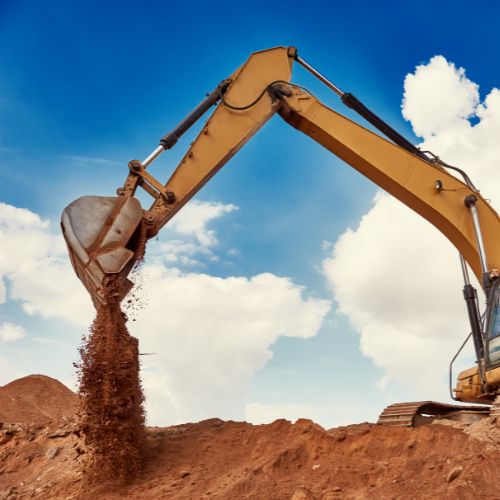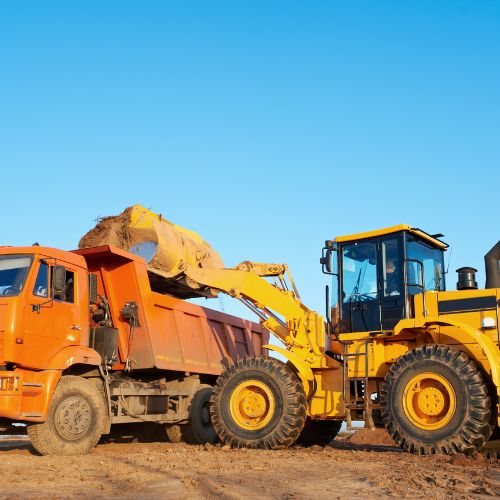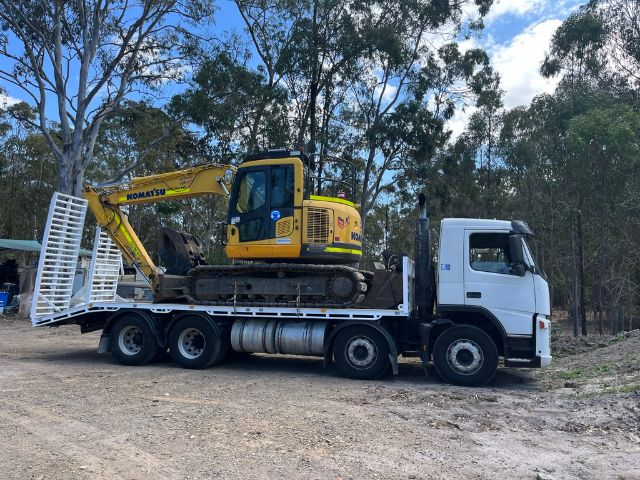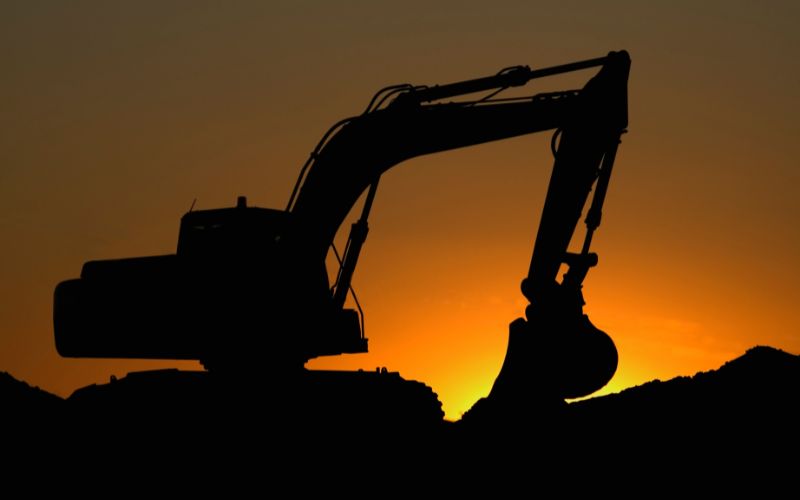Types of Excavators Used for Costruction
Have a construction job that requires an excavator? Several different types of excavators can handle various tasks. If you are about to hire one for your project, it is wise to find the right one for the job. Here is a quick look at the different types of excavators available.
Compact Excavator
Also known as a crawler, this type of excavator is everywhere. They are usually on tracks, have an enclosed cab for the driver, and the boom is powered by hydraulics, which makes it quieter to operate. The benefit of this type of excavator is that the tracks keep it stable and movable on uneven ground. The downside is that the tracks slow it down and are costly to maintain. Tracks also tear up the pavement.

Hydraulic Front Shovel
If you have been to a mining site, you’ve seen one of these. They don’t normally appear on civil construction sites as the bucket on the front of these excavators can carry massive loads of up to 50 cubic meters. Although the best thing about this type of excavator is that it is so big, which makes it the perfect fit for mining and huge projects, its size is also a disadvantage. They are often far too big for the average civil works project.
Long-Reach Excavators
For projects that require digging in places that are hard to reach for any other machine, this excavator is your answer. With a reach of over 30 meters, there isn’t much this machine can’t do. That’s the main advantage of a long-reach excavator. It’s also a disadvantage as the long boom makes it hard to move around and takes up a lot of real estate when they are not in use.
Suction or Vacuum Excavators
This is a specialised excavator that is used to work around delicate structures that would likely get damaged by any other type of earth mover. A suction, or vacuum excavator uses a pressurised water jet system to break up dirt and then sucks it up with a vacuum hose. This type of excavator is usually mounted on a truck for use. They are perfect for work related to pipes and drains but don’t dig. If there is a large volume of soil that needs to be removed from an area, this is not the tool for that particular task.
Ultra-High Demolition Excavator
As the name implies, this is the excavator you need for demolition work. They often have large two-piece booms, a cab that tilts to give the operator a comfortable view of what they are doing, and a large undercarriage to improve balance under a larger load. This purpose-built excavator can rip down structures up to 60 meters tall. The downside is that aside from being costly to operate, these excavators are also hard to move to a construction site due to their size.

Wheeled Excavator
A wheeled excavator is much like a crawler but instead of being on tracks, it is on wheels. This makes them a lot easier to use as they can travel on concrete or roads and not cut the surfaces up like tracks will. Plus, a wheeled excavator moves faster. As for the downside, they are not so easy to move around on rough terrain, and usually, a skilled operator is required to work with one of these types of excavators.
How Big Is The Biggest Excavator?
The Bagger 293 is the largest excavator on the planet. It is a bucket-wheel excavator which also holds the title of the world’s largest land vehicle. It is 96m tall, and 225m long. It weighs 14.2 tonnes and is only used for special projects where an excavator of this size is required.
Need To Hire An Excavator? Contact E4H Today
For projects ranging from landscaping to building watering systems, you need an excavator. They are also useful when working with water tippers, tip trucks, and other tippers. To be sure you get the right excavator for your construction project, contact E4H today to discuss hiring one from them. They can give you the advice you need to get the right excavator for the job. Contact E4H today.

Conclusion
Excavators are a lot more than just big diggers. There are different types for different kinds of projects. To make sure you get the right one for your construction project, talk to an expert and hire one from an expert to ensure your project moves ahead smoothly with the correct tools in use.



